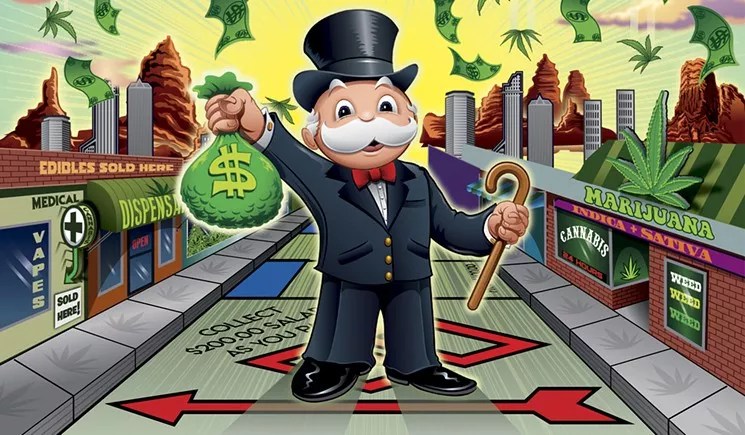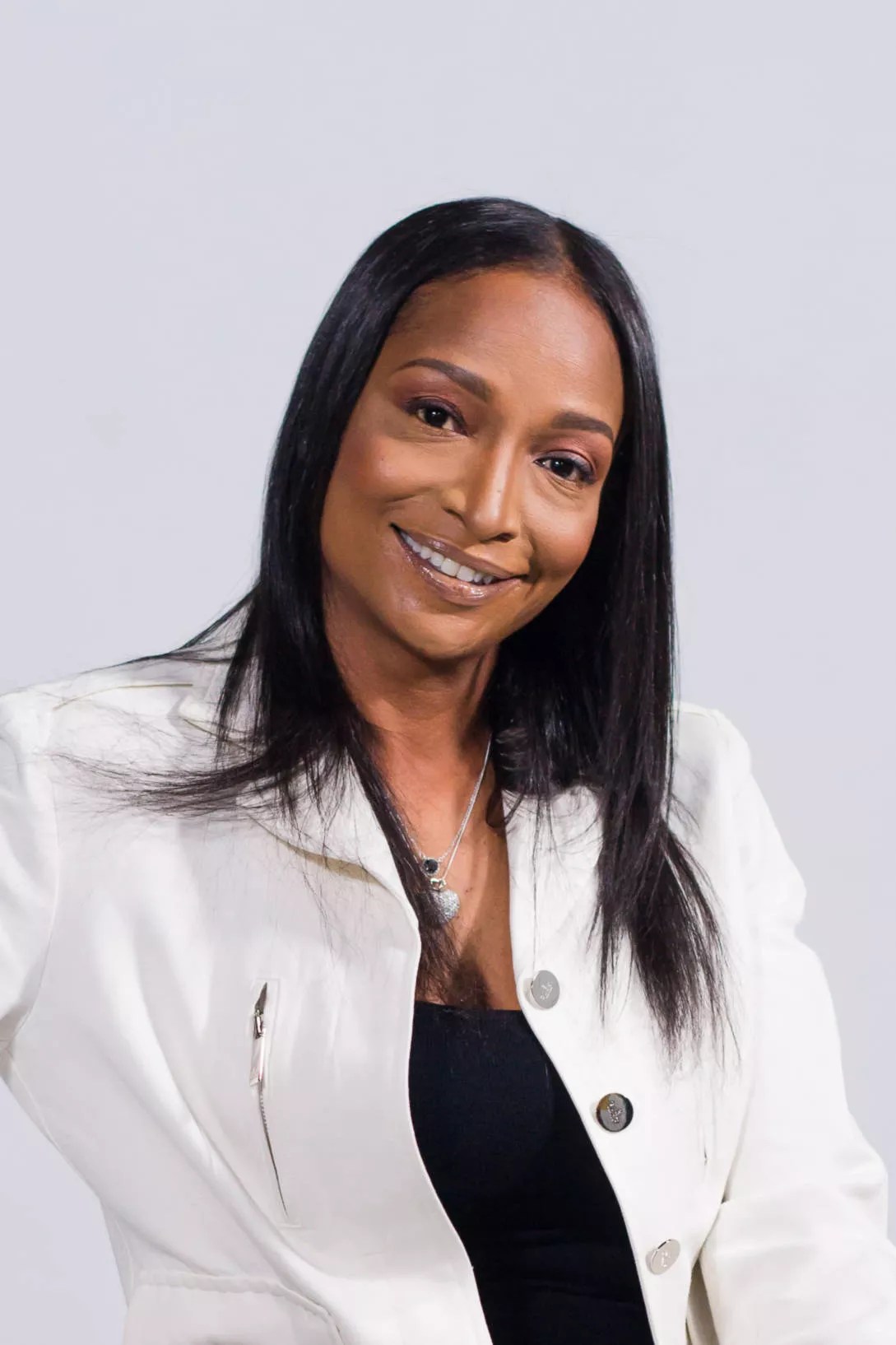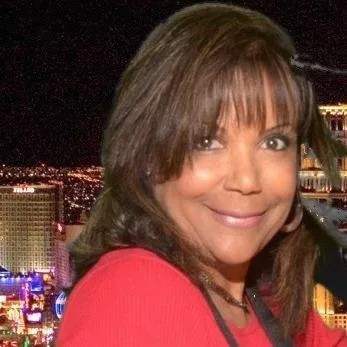
Phoenix New Times

Audio By Carbonatix
Did you have a low-income year in 2019?
Did you ever get busted for a small amount of marijuana in Arizona?
If you can answer yes to both of these questions, you just qualified to enter a drawing for one of the state’s 26 “social equity” cannabis dispensary and cultivation licenses under Arizona’s new draft rules.
Now all you need is $5,000 for the non-refundable fee to enter this lottery.
If you’re looking for the “social equity” part of this new social equity policy, you’re not alone. Cannabis advocates criticized the draft rules in a big way this week, decrying the weak equity effort and saying the most likely result if these rules went into effect would be a swift grab of the 26 licenses by established cannabis companies. As many have noted, the rules provide no direct help to minority communities or individuals and seem to be contrary to what voters wanted from the social equity portion of Arizona’s new recreational legalization law. Under the current language, a white billionaire’s 18-year-old son with a single pot arrest would qualify for a social equity license.
But there’s still time for the state to change the rules, and for you to help influence that change. The state set up a poll for the public to weigh in: Click here to access the survey once you’ve read up on the draft rules (below) and the assorted opinions about them. The survey’s deadline is Sunday, May 16.
Rules Will Evolve
Proposition 207, which voters approved by a 60-40 margin in November, was written and promoted by the state’s marijuana dispensary industry and primarily benefited the holders of about 130 medical marijuana licenses already active in the state. The law limited new recreational licenses mostly to these license holders, allowing existing dispensaries to convert to adult use, which they did in late January. The 26 social equity licenses the state will hand out at some point are basically guaranteed to be significant sources of revenue for their owners.
The law states that the social equity licenses will adopt rules for “the creation and implementation of a social equity program to promote the ownership and operation of marijuana establishments and marijuana testing facilities by individuals from communities disproportionately impacted by the enforcement of previous marijuana laws.”
It also requires $2 million for the funding of this development together with the state Department of Economic Security “and other state agencies.”

Arizona officials used lottery balls previously to decide who gets a marijuana license.
Ray Stern
Steve Elliott, a DHS spokesperson, said the draft rules released were developed by conducting a nationwide review, consulting “with marijuana programs in other states,” and working with lawyers. The agency hopes to refine and improve the draft rules, and will provide “multiple opportunities for the public to weigh in on the rules to best meet both the letter and intent of the voter-approved initiative,” he said. “Regarding the $2 million mentioned in … the law, we are developing plans for using this funding. It will be used for the program’s next steps.”
Elliott avoided answering whether any people of color were involved in creating the draft rules. The DHS schedule for future public comment isn’t clear, but Elliott said the department’s goal was to file the rules by June 1, the general deadline for all rules related to the new recreational law. The law gives the DHS six months after that to launch the social equity program.
There’s no date yet for the lottery, which will be held in the likely event that more than 26 people or qualifying entities will enter.
The new draft rules take up only 12 pages and consists of new verbiage, plus old rules from the medical marijuana program that have been crossed out. Besides stating who can qualify for a social equity license, the rules scratch the requirement to have $500,000 available for capital. Unlike the old rules, the social equity rules would allow people to obtain a license 18 months before they need to provide proof that they have a physical location for their planned dispensary.
If a lucky winner has no experience running a business, no worries: The people behind a social equity license must take an “educational training course” on subjects like how state and federal marijuana laws work and how to run a business.
But as Elliott acknowledged, nothing in the 12-page draft restricts a qualifying license holder from selling or transferring his or her license.
Jackpot
Celestia Rodriguez is embarrassed to admit she would qualify for a social equity program under the draft rules. She had hoped to qualify in a different way – by partnering with other people of color who have experience in the cannabis and business worlds. She’s a local Black entrepreneur who’s acutely interested in the possibility of social equity in the cannabis industry and the ongoing lack of it.
“They put no thought in it,” she said of the 12-page document, noting that the rules for social equity program in Illinois consisted of about 200 pages. As a person of color, that hurt in and of itself, she said.
Her main problem is the lack of a provision for “giving back to any of the communities that were affected,” she said.

Celestia Rodriguez
Acre 41
For instance, a 2020 study by the American Civil Liberties Union showed how Black people and Latinos spent more time in jail for marijuana offenses and were less likely to have their cases dismissed, among other things. The paucity of Black people in leadership positions in cannabis businesses has been a point of contention among social-justice advocates for years.
Rodriguez is a local entrepreneur who owns a cannabis consulting and CBD business and said she’s worked as general manager and director of operations at several dispensaries in Maricopa County. She has a minor marijuana offense on her record in Arizona, but wouldn’t normally qualify for anything based on her having a low income. The draft rules’ criteria require license applicants to have earned no more than twice the federal poverty limit in 2019, which would be about $25,000 annually for an individual and $50,000 for a family of four. But Rodriguez had back surgery in 2018 and didn’t work as much as usual in 2019, which means her income was low enough that year to qualify under the draft rules.
She likely has far more experience than the typical person who might qualify and apply if these draft rules get finalized. She and three other women of color who assert “prior or current experience” in cannabis-related businesses – Shakirah Martinez, Blake Humphrey, and Zsa Zsa Simone Brown – recently started a company called Acre 41 with the hope of securing one of the social equity licenses. With the draft rules, the women’s business acumen won’t help them get the license. The rules will create just what the Acre 41 group had worried about: A system of large cannabis companies playing puppeteers to token qualifying license holders.
Winners of the license lottery in the draft-rule system would be besieged by “multi-state license holders,” Rodriguez predicted. “They will probably offer this individual more money than they’ve ever seen in their life,” she said. “They’ll think they hit the jackpot.”
The Marijuana Industry Trade Association of Arizona has been gathering potential social-equity license holders and holding seminars to help them move forward with the process. Rodriguez said that unless something changes, MITA’s programs will prove more helpful in “vetting” straw owners for existing cannabis companies that want to obtain equity licenses than giving them a head start to running their own company.
MITA’s executive director, Demitri Downing, who was hosting a webinar today with stakeholders and experts on the social equity program, said he had no immediate comment on “paranoid conspiracy theories.”
Challenges Ahead
Opinions about the social equity program were plentiful before the release of the draft rules. In February, a group of industry veterans, pastors, and people of color sent a letter to the DHS with suggestions on how to set up the program. They suggested prioritizing 22 high-poverty ZIP codes that had a high proportion of people who are Black or Latino. License applicants, or one of their family members, should have a nonviolent marijuana offense on their record, and the licensed business should be located in, and hire from, the targeted ZIP codes.
Ingrid Joiya, a Black woman, author, and cannabis business consultant who helped write the letter, said the draft rules look more like “social inequity,” with no requirement for the license holder to help people in the “communities disproportionately impacted” as the law required, she said. She had hoped to see something that kept businesses, or at least their profits, in neighborhoods of color.

Ingrid Joiya
“Most people I have spoken to from the communities that have been adversely impacted would prefer that the state not even do this if it is going to be such a shitty effort,” she said. “It is really insulting.”
Yet Joiya admitted that while other states have tried, or are trying to implement a program that addresses past wrongs that hurt minority communities, none have yet got it right. States that have had legalization for years, like Colorado and Michigan, should have done something on the issue by now but are just getting started, she pointed out.
Ohio’s medical marijuana program mandated that 15 percent of licenses go to people from economically disadvantaged groups, naming African-Americans, Latinos, Native Americans, and other specific minority groups. The plan fell apart two years ago when a judge ruled that such quotas might be possible if there was direct, statistical evidence of targeted discrimination in the industry, but that the court had no interest in trying to solve “generalized societal discrimination.”
Joiya likes an Illinois plan that would give some licenses to people from areas known to have been badly affected by the War on Drugs. But licenses in that state have been held up for more than a year as officials continue to work on policy and frustrated applicants filed lawsuits.
Gary Smith, an attorney and president of the Arizona Cannabis Bar Association, had an op-ed published in the Phoenix Business Journal on Wednesday expressing disappointment with the new rules. Smith, who’s white, suggested several fixes. First, he wrote, the DHS needs to define the terms it’s using, like “disproportionate impact,” and “speak to these qualities.” The state should have hired professionals to set this up, he said.
He recommends a merit-based system rather than a lottery.
“Race is an electrified rail that no one wants to touch, but isn’t that what we’re talking about?” he told New Times. It’s possible to build a program that’s constitutional and still address race directly, he said, perhaps by including race or ethnicity as part of an overall “score” that the DHS could use to pick the winners.
Yet back in 2012, when the state was first considering how to apportion a limited number of medical marijuana dispensary licenses, a random lottery was chosen out of concerns that anyone who didn’t get a license on their “merits” would sue the state and challenge how the state chose the winners. It’s unlikely the state would consider a merit-based system.
Other suggestions from the critics include waiving the $5,000 application fee (which logically would be tough for low-income people to come up with), including groups like veterans, and mandating that any transfer of the license must go to someone who also qualifies for a social equity license.
Tom Dean, a local cannabis attorney and activist, said that while the state may be nervous at the prospect of getting sued, officials need to take steps to make sure the social equity licenses aren’t quickly snapped up by non-minority-owned companies.
“It seems clear to me that the intent was to benefit communities, not lucky individuals,” Dean said, adding that the rules need to be “completely revamped.”
Below, read the draft rules: